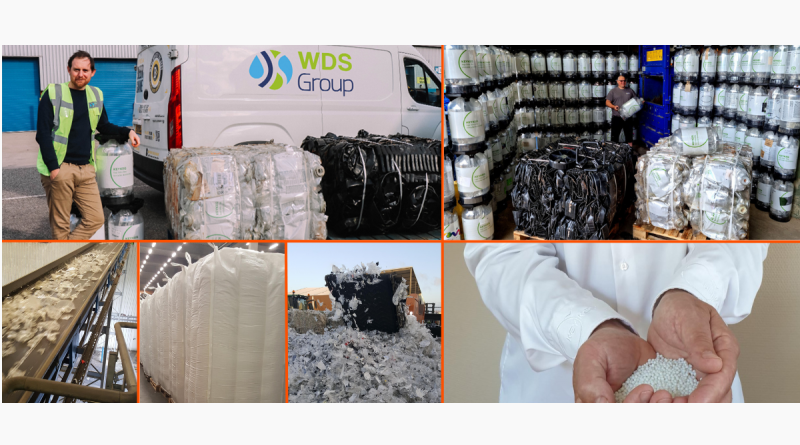Circular loop for PET kegs
Keykeg and Dufor, the supplier of high-quality polyester for Keykeg and Unikeg PET kegs, have successfully created a circular production loop. Bert Hanssen, Sustainability and R&D Advisor at Keykeg, explains that their collaboration focuses on circular plastic packaging for beer and wine: “About five years ago, we started looking for partners that could collect the beverage kegs. First in the Netherlands, later also in other northern and western European countries.”
Collecting the kegs is merely the beginning of the circular chain. Keykeg has partnered with various small recycling companies that collect the empty packaging from bars, hotels, and restaurants. These companies compress the kegs to reduce volume and store the material until there is enough to fill at least half a truck. The material is then transported to an intermediate storage facility.
At this temporary facility, materials from different European countries are aggregated. Once they have collected 150 to 200 tons, the materials are sent to Germany, where the seven different plastics that make up the kegs are separated. “We need all of those plastics for the functionality of the kegs. PET is more than half of the weight. This is washed clean and then goes to Dufor in small particles called flakes. Just like the industrial waste from the factories. To these plastics, additional recycled PET is then added by Dufor, followed by a portion of special polyester to achieve the right properties of the final product,” explains Hanssen.
All materials are mixed and melted into pellets, which are further cleaned at Dufor for use in injection moulding of preforms. These preforms are then sent to Keykeg’s factories, where they are blown up into new Keykegs.
Hanssen highlights Dufor’s significant role in creating their product and making the circular loop possible. Dufor’s size allows for quick adaptation and open communication, which has been beneficial for Keykeg. Initially, Keykeg’s production volume was too small for Dufor, but as they grew, the collaboration flourished. Hanssen believes that converting a used product back into the same product, especially with committed partners, is a remarkable achievement and a prime example of a circular economy. Keykeg is now expanding this model to central and southern Europe and hopes to establish a similar loop in the US in the future.

